#that's not an arc that's just token mentions of his past crimes
Text
IDW Megatron stans can shit on IDW Optimus all they want but it won’t change the fact that IDW OP has something that IDW Megatron can only dream of having (a post-war character arc that directly addresses his/his race's culpability in historic Cybertronian imperialism and racism).
#squiggposting#like i like them both but it's just one more way that i've changed since ive gotten into this fandom#there are a lot of idw meg stans who shit on idw op for being a cop but like#idk bud optimus' character arc actually dealt with hard questions of culpability and historic prejudice and colonialism#megatron got like one line where he observed how fragile humans are and then at the end he got sent off to trial#that's not an arc that's just token mentions of his past crimes#like idk i came into this fandom as a megatron stan but now i'm just kind of like. in terms of idw? optimus is way better lmao#like sorry optimus is the one who had to deal with cleaning up megatron's messes on earth#optimus is the one who died to save his species (and earth) by reconciling with an alien who was wronged by the past primes#megatron could never. megatron had to have a whole alternate universe invented for him just to give him something heroic to do lol#some megs stans are like 'he was right!!!' and i'm like#cool. literally everyone agrees functionism was bad in universe#now let's talk about the simanzi massacre and grindcore and the entire fucking technoism thing#it's very annoying lol#like i love megatron too but not when i see ppl acting like he had no flaws#i'm not a megatron anti i just actually acknowledge that he did bad things and can reconcile that#with my enjoyment of his character lol#but yeah this is a mini rant about how tje more idw i read the less of a blind megatron stan i became lol#optimus doesnt have to apologize to megatron for shit
19 notes
·
View notes
Text
Might stop reading Worm.
Content warning: bugs/insects/arachnids and related horror, body horror mention, miscellaneous violence mention, sexual violence/assault mention
My thoughts on the first ten arcs of Worm. (contains spoilers)
So, I finally got around to reading Worm. It was kinda big when I was in high school, and I still know some people who are/were into it, so I thought it was time that I gave it a serious shot. I did actually try to read it in high school once, but I couldn’t get into it and stopped reading after the first chapter. I tried to be a little more persistent this time to give it a fair evaluation.
When I started reading Worm this time around, I kind of just breezed past the warning at the beginning (“This story isn’t intended for young or sensitive readers. Readers who are on the lookout for trigger warnings are advised to give Worm a pass.”) I don’t consider myself someone who really gets triggered by media. I think it’s important to talk about stuff, including fucked-up stuff. It’s uncomfortable, but that discomfort is part of the point. I think it probably should bother you to read about terrible things, even fictional ones, given that those fictional atrocities almost always have real-world counterparts.
I think I vastly underestimated the amount of fucked-up-ness that is in Worm. When I read that warning, I thought, “Okay, this story’s probably dealing with some dark themes, and there might be some particular scenes that are really disturbing.” After reading the first ten arcs, though, I feel it’s more accurate to say that fucked-up-ness is Worm. It is the core of the story, and there is really very little else.
So it’s not that any particular thing that happened in the story triggered an immediate, strong, psychologically-damaging reaction in me, but as I continued reading, I began to notice that not only was I not enjoying myself, I was actually finding it subtly unpleasant. When I read about something bad happening, I get hit with a small dose of negative emotion. As it turns out, that adds up over time, especially when there aren’t any positive scenes to balance out the negative stuff. Without me even noticing for a long time, Worm was making me unhappy.
Here’s what I did like about Worm:
Impressive world-building - Wildbow is exceptional at inventing different locations, groups, and individual actors and thus creating a detailed ecosystem of capes and civilians.
Lots of characters, lots of superpowers - Directly related to the previous point, Worm contains a lot of characters...arguably too many characters. I generally prefer stories that focus on a smaller number of characters in order to give each character more room for development, but I appreciate Wildbow’s talent for coming up with vivid, if simplistic, characterizations. There are also some really interesting superpowers and interesting takes on common powers.
Inventive use of Taylor’s superpower - Taylor is always coming up with new uses for her power: having black widow spiders spin silk for her suit, using her bugs are a sixth sense to keep track of her enemies and environment, using venomous bugs to take hostages, covering her body in bugs as a disguise, coating her bugs’ stingers in capsaicin for extra punch, using human-shaped swarms to fake out her enemies...The list goes on and on, and I really appreciate how Wildbow took this oft-overlooked superpower to the next level.
Danny Hebert - The only character in the story who I can say I genuinely like. Danny Hebert is a union organizer whose pet project is getting the ferry up and running again so that there can be more interaction between the poorer and wealthier parts of Brockton Bay. I also loved the scene where he supports Taylor in the “mediation” with her bullies and their parents at school. Even if he was impotent, unable to protect her, I could tell he was on her side. His one screw-up is when he locks Taylor in the living room and tries to force her to talk to him, but it definitely makes sense with his character (a little bit of a pushover) and the story (Taylor was shutting him out and seemed to be putting herself in danger) that he would end up letting Taylor’s grandma convince him to take a forceful approach. Don’t get me wrong, locking up your kid is a horrible thing to do (I should know, my parents did it to me, and it fucked me up), but I still ended up feeling bad for him when Taylor just up and disappeared. She didn’t even call her dad to let him know that she was still alive after Leviathan! I mean, on the one hand, I do actually appreciate that she started making an effort to protect her father from the dangers of her cape life, something that I was kind of appalled to see that she never even considered before. But damn, did I feel bad for Danny.
Here’s what I didn’t like:
Way too much fucked-up shit happening - Name an atrocity, Worm’s probably got it. The plot is mostly just terrible thing after terrible thing and reveals of how terrible all of the characters are, with many terrible things that aren’t directly treated in the plot peppered in along the way.
Lots of capes, no heroes - This is one of those themes that sounds deep on paper but is really just cynical and fatalistic. Even if all the capes are corrupted by power (or by the toxic power dynamics between capes), what about civilians? Where’s the thoughtful therapist or the brave fire-fighter? Danny Hebert is one notable exception to the “Everyone is terrible” rule, but we don’t see all that much of him. Other than him, the only person I can think of who could possibly fit this “civilian hero” role is Aisha’s social worker, who I don’t think even has a name.
All superpowers are evil - This is arguably just a rephrasing of the previous point, but I think it’s important to mention. Worm contains so many superpowers, but it seems like they’re all being put to evil purposes. Panacea, the superheroine with healing powers (really just dominion over health and illness of the human body in general), makes some really despicable threats (e.g. giving someone cancer with a touch, or giving someone a disorder that will only manifest at an unknown time in the future, leaving them to anguish over their fate). Don’t get me wrong, there’s nothing inherently wrong with writing a character using this type of power for evil ends. There’s a lot of interesting stuff to explore there, and I actually love that Panacea is a character that acknowledges the burden of having a healing power, feeling unable to take any time for yourself while simultaneously growing to resent those you feel obligated to help. My issue is not with Panacea but with the fact that literally every superpower in the story is painted in a negative light. It just feels absurd to suggest that, for example, someone like Gallant couldn’t use his power (carefully and thoughtfully and with consent) to heal people with emotional trauma. Superpowers in Worm are only for violence and conflict and crime, and I just don’t understand that. Again, the rogues form a token exception, but we rarely actually see them, and one of the first rogues we meet, Canary, is immediately subject to harsh and unjust punishment and never heard from again.
A misguided focus on only certain types of crime/violence - Worm deals with gang violence, robberies, and general chaos-inducing terrorism. It focuses on crimes perpetuated by working-class individuals and small to medium size illicit groups. There’s some commentary on state-sanctioned violence in terms of the corruption of the Protectorate and Dragon’s worries of having to obey a despot should one take over the government, but it’s not exactly framed in a way that highlights the struggles of the average person; the focus is almost entirely on capes. Worm doesn’t discuss things like wage theft, illegal rent hikes, or, dare I say it, the inherent violence of capitalism, which, while less flashy, are important problems with far-reaching consequences. It’s weird, and honestly kind of unrealistic, that there’s not a single anarcho-communist cape. Whether you agree with that kind of politics or not, it’s still a glaring omission if the setting of the story is trying to emulate real life. Again, Danny Hebert’s role as a union organizer and interest in restoring the ferry and reintegrating the city pay token attention to some of these ideas, but the vast majority of the story is unconcerned with addressing the source of, or solutions to, poverty and crime in Brockton Bay and the wider world of Worm.
So those are my thoughts. There’s a part of me that still thinks, “But so many people like this so much! Maybe it’ll get better!” I have a really strong drive to understand why others like the things that they do, to be able to share in their appreciation. But from what I’ve seen in a couple memes I happened upon, things are getting worse, not better for the world of Worm. And even if things start to resolve at some point, I’m not sure it would be great for my mental health to continue reading up to that point.
The breaking point for me, if you’re curious, was when a main character was just casually revealed to be a serial rapist. That wasn’t even the point of the chapter, it was just kind of thrown out there as an extremely-not-fun fact. So I was still reeling from that reveal while also experiencing all of the atrocities said character was committing in the moment, and after that was when I realized, “Hey, maybe this is not the kind of content I should be reading.” It even took reading a few more chapters into Arc 11 for it to really sink in, but I had this weird revelation of like, I get to choose which fictional worlds I spend my time in, and the world of Worm isn’t one I relish.
If you do enjoy Worm, I’d be curious to hear your thoughts on what makes it appealing to you.
#text#long text#review#thoughts#web serial#fiction#Worm#superpowers#parahumans#superheroes#supervillains#morality#evil#violence#capitalism#systemic violence#grimdark
65 notes
·
View notes
Text
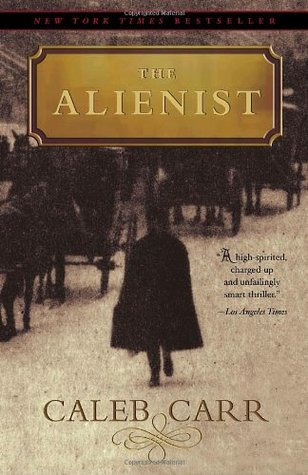
The Alienist. By Caleb Carr. New York: Random House, 1994.
Rating: 4/5 stars
Genre: historical fiction, mystery, suspense
Part of a Series? Yes, The Kreizler Series #1
Summary: The year is 1896. The city is New York. Newspaper reporter John Schuyler Moore is summoned by his friend Dr. Laszlo Kreizler—a psychologist, or “alienist”—to view the horribly mutilated body of an adolescent boy abandoned on the unfinished Williamsburg Bridge. From there the two embark on a revolutionary effort in criminology: creating a psychological profile of the perpetrator based on the details of his crimes. Their dangerous quest takes them into the tortured past and twisted mind of a murderer who will kill again before their hunt is over.
***Full review under the cut.***
Content Warnings: ableism, homophobia/transphobia, racism (including slurs), sexism, rape, abuse, child abuse and sexual assault, child prostitution, animal cruelty, blood, gore, violence
Overview: This book has been on my TBR list for a while, so I figured I’d finally get around to reading it. I wasn’t sure what I was expecting, but I was actually surprised by how much I enjoyed the reading experience. Carr writes in a way that pretty closely imitates 19th century detective fiction, and while such a style might not be for everyone, I thought it went a long way in creating atmosphere. My criticisms have mostly to do with pace and the creative decisions that probably didn’t have to be made (such as depictions of child sexual assault, use of slurs, etc), but even with those faults, I have to give Carr’s craft and research a lot of credit, so this book gets 4 stars from me.
Writing: As I mentioned above, this book mimics detective fiction of the 19th century. If you’ve read any of Arthur Conan Doyle’s Sherlock Holmes stories, you might get the idea: first person, characters displaying almost whimsical behavior, stuffed with contextual details that may or may not be relevant. At first, I thought the reading experience was going to be a slog, but once I realized what Carr was trying to do, I readjusted my expectations and found the prose to be quite engaging. If you like 19th century literature, you might appreciate what Carr does, but if you find older lit to be a challenge, this book might not be the thriller you’re hoping for.
That being said, I do think there were some areas where Carr could have picked up the pace or even cut some of the contextual details. It’s obvious that Carr did a lot of research before writing this book, and it’s understandable that he would want to show off some of that research, but there were times where I felt like it was a little much.
I also think there are a lot of things in this book that will offend modern sensibilities. I recall at least one use of the N-word (which is spoken by a racist minor character) as well as remarks that make it clear that characters think same-sex intimacy is “deviant” or abhorrent. I can understand why Carr put them in his book; if we’re trying to evoke an atmosphere and make the story feel like it’s set in the 19th century, it’s not realistic to expect everyone to be accepting of gay sex or treat POC with respect. But also, I think it’s on Carr to bear the responsibility of creating plot points and characters that have those attitudes in the first place. The character who uses the N-word could have easily not done so, and characters could have been more clear that their revulsion was at child prostitution rather than same-sex relationships.
Still, I was able to follow the plot with no problem and the sentences flowed in a way that made the reading experience feel quick (no 10-line sentences, thank god). So while there may be some things I would have liked to see adjusted to fit my own tastes, I think Carr did a wonderful job of making me feel like I was reading an older work.
Plot: The plot of this book follows a group of investigators as they try to use psychology to catch a serial killer. As far as being an “original” or unique thriller, this book doesn’t necessarily deliver a plot we haven’t seen before; but what made it so interesting (at least to me) was that it was less interested in the thrill of catching the killer and more interested in thinking through the “whys.” Why did the killer do X? Why did he do Y and Z when he could have done A or B? In this sense, the suspense doesn’t come from the action or the “chase,” but from the building of ideas and a foggy picture becoming more and more clear.
If I can fault Carr for anything, it’s that I think he crafted his mystery around some subjects that are... touchy (for lack of a better word). Most of the murder victims are children - specifically child prostitutes - and a lot of the killer’s motivations are rooted in some combination of racism and exposure to abuse. If you’re looking for a book which handles these issues with sensitivity, I think you’ll be disappointed. But I have to give Carr some credit for not overly sensationalizing these things; for example, while he did include characters who were racist towards Native Americans, he also included characters who were sympathetic and who insisted on not judging tribes for their defensive violence. Not everything is perfect, and there were some moments that made me uncomfortable, but I felt like Carr painted a complex picture of 19th century America, so I was able to keep going.
Characters: The plot of this book is told from the perspective of John Schuyler Moore - a newspaper reporter who teams up with his friend, eminent psychologist Dr. Laszlo Kreizler, to catch a serial killer. As a protagonist, Moore isn’t overly compelling - he’s more like a neutral, blank slate that the reader can project themselves onto. He serves much of the same function as Watson in the Sherlock Holmes stories: to be a witness to other characters’ brilliance while occasionally making some helpful insights. Still, I didn’t outright hate Moore - he was kind and loyal, and I admired how he went out of his way to try to help people.
Kreizler, the psychologist (or “alienist” as they were called in those days), is somewhat of a Sherlockian character in that he’s eccentric, confident, and had abilities that stun the people around him. For the most part, Kreizler was fun to follow. I think the only times I got truly frustrated with him were when he would allude to some knowledge and then leave Moore in the dark - like “aha! This thing is obvious!” “What thing?” “No time to explain! I’ll tell you at dinner!” Those moments were a little irritating.
Sarah, the most prominent female character, was more complex than I expected her to be. She has clear career aspirations and doesn’t let anyone hold her back, and I liked that she was presented as this kick-ass woman who still felt human. She struggles when faced with the horrors of the murder, but she doesn’t let the horror put her off of her task. She’s confident and never seems to have a moment of self-doubt (which is refreshing). She notices interpersonal things without being boxed in as “the woman who notices emotions.” Granted, Sarah does serve some token function - she’s brought on in order to provide a “female perspective,” which was a little frustrating, but she held her own so well that my annoyance melted away.
Marcus and Lucius, the two brothers who work for the police department, are also quite charming characters. I loved how they brought technical expertise to the group by being knowledgeable about anatomy, fingerprints, photography, and the like, and I especially enjoyed the way they bickered with one another. Their presence immediately made scenes feel lighter, and they brought something of a family aspect to the whole band.
Supporting characters were well-crafted in that no two felt quite the same. Teddy Roosevelt (yes, that one) was cheerful and warm while still demanding absolute cooperation and loyalty from his men. Cyrus and Stevie - two of Kreizler’s employees - were charming, though I wish Cyrus had gotten to do more than just kind of silently stand by awaiting orders. Mary - Kreizler’s maid - was a lovely character, and I appreciated the positive disability representation we got with her, though I do not like how her character arc ended and how it related to the main plot. The crime bosses were intimidating without feeling too much like stock characters, the thugs did their job. I don’t think there was a character that was poorly written, just characters who served purposes that may or may not have been needed.
As for the murderer... we don’t get to see him very much, but I felt like I got to know him because so much of the book was focused on mapping out his life and psychology. It worked much better than books where the antagonist is looming off to the side, acting as a vaguely threatening force but not really a character, and one that doesn’t even show up until the last quarter of the book. When the killer finally does appear on page, I felt like he had been involved in the story, even without being physically present, so I was able to accept him as an active force on the narrative, not just a surprise twist at the end.
TL;DR: The Alienist is a well-crafted mystery that uses atmosphere and psychology to create an engaging mystery. While some readers may struggle with the period-like prose or the more disturbing aspects of the story, Carr creates a compelling narrative by focusing on understanding and knowledge over spectacle and action, and by using well-developed characters.
8 notes
·
View notes
Text
Hidden Inventory Arc (Jujutsu Kaisen): Aftershocks
Gojo's Past aka Hidden Inventory arc is probably did something that took Naruto to 448 chapters (Obito's storyline) to complete in just 14 chapters.
Boy did Gege Akutami hit the ball out of the park with this arc! Here is the listicle of my selective Brain farts and aftershock of reading this arc. Some are good things, some are just my own queries and some are bad things to wish to be improved.
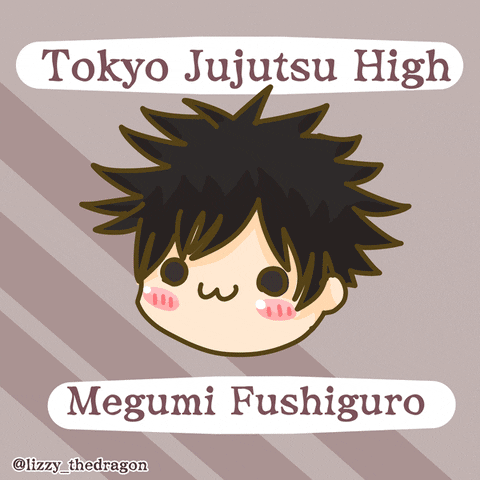
Aftershocks:
1. Friendships: Utahime Iori and Shoko Ieiri have a really underrated and precious friendship, that I would like to see. Something like in Jujutsu scroll.
2. Shoko Ieiri: I know people say Nobara Kugisaki is a better version of Sakura from Naruto. I say you are wrong! Shoko leiri is the better version of Sakura.
Please don't @ me!!!!!!!
Sakura Haruno in Naruto is somebody who has always worked under the shadow of these two Godlike Shinobis. She has always walked behind them, in her own words. She is a medical assistant. She is friends with the tsundere from another team(Ino). She does have some personal issues and she has learned to deal with them in punches. BUT we are here for Shoko Ieiri, She is the third member of the Godlike Socercers' team. She is doesn't go on dangerous missions. She is a medical assistant. She is friends with the tsundere from another team(Utahime). See, what I mean when I say they have so many things in common. BUT there is a key difference between these two ladies. Shoko has never relied on the boys. She never yearned for their approval. In fact, after committing heinous crimes Geto came to visit her, and in response asking him to come back she knew her boys well enough to let them have their last conversation. Even as an adult, she is the one who sided with Gojo on Yuji's death.
YES, I know that Sakura and Shoko both are different character types. One is kind of tsundere and the other is emo type. Having said that, I know these two ladies had served a similar kind of purpose for their respective duo. Neither of the ladies has tons of details on them but one is given respectable characterization and another one has tokenism, guess which one is which?
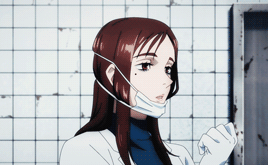
3. Hidden gems - principal Yaga and Kuroi Misato: Well, he is not a principal in this timeline. Yet, the punching Gojo gave me flashbacks of the Goodwill event.
This is something that so many anime have done in past so well. And there is a solid reason that this kind of dynamics works. serious teacher- idiot student! their affection and understanding are great character dynamics.
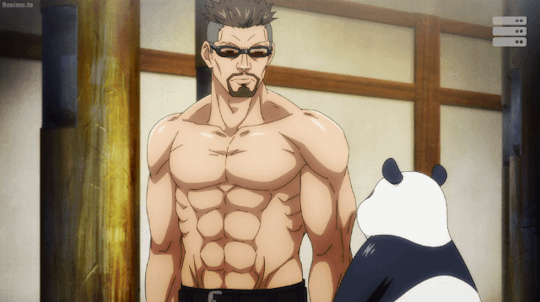
Kuroi Misato, the caretaker of Riko. She was more than that she was family to Riko. She was badass through and through! Also a fan of Mario Kart just like Nobara. I thought she needed a special mention.
4. Character deaths: Gege from the beginning was not afraid to kill his characters. whether Yuji in the very second arc, Junpei in the following arc, Gege Akutami killed his character if it was necessary for our trio. However, it is Riko's death that catapulted us into whatever we are getting currently. It moved the plot in an instant with a shock to everybody's system. Needless to say, it was very well done! But, dear god, Riko was a sweetheart! honestly, when Gojo carried Riko's body, that made my eyes tear up!
Evil but the absolute genius stroke was when Riko realized and had the real option to go back and live a normal life, in that exact moment her life was taken away from her. like I said, evil but genius!
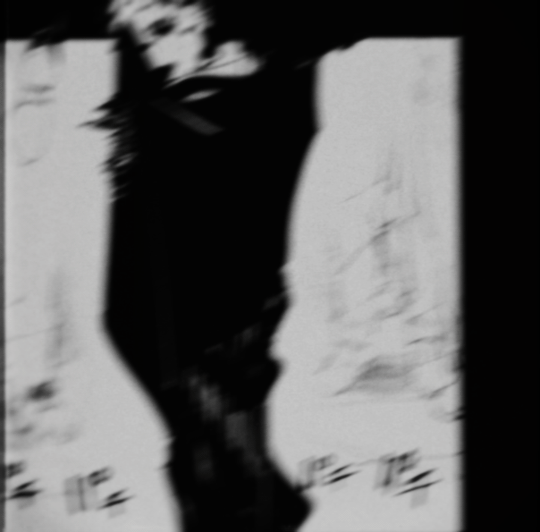
5. Trash talk: I mean Toji and Satoru did name-call each other. But seriously they should take pointers from Nobara. Boy does she do a great job in trash talk!! And no that is not an observation, it is a fact!
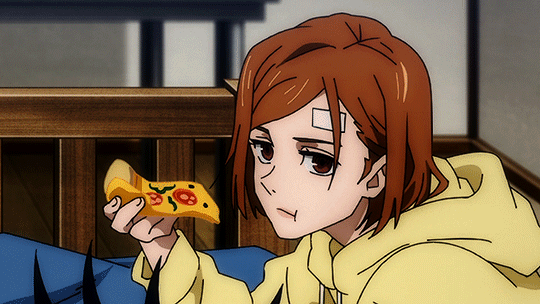
6. Chapter 69: Just ignore the number. The thing I am getting into is not something new. People before me and a lot more credible than me have said this. However, here I go, the one thing that is difficult about JJK, is the art style whenever the story kicks into gare. The art style gets all lines and mushy whenever the battle starts. And it is not good when you are a battle shounen manga! But personally, sometimes this art style makes it difficult to read the manga (though it might be not for everyone). So as a result I find anime does one better here. But this very chapter is easy to read. It was easy to flow. I am not well versed in a manga art form, but when I see one I know one. And as much as I love the story, but when the story goes into a battle mode I have to reread some parts or google later on to understand what is happening. That being said Chapter 69 (Yes! I am giggling, I will give you some time to giggle also), by far the easiest to read. All the action scenes were easy to read, all the funny scenes landed perfectly. So, Kudos!!! More of this, please!
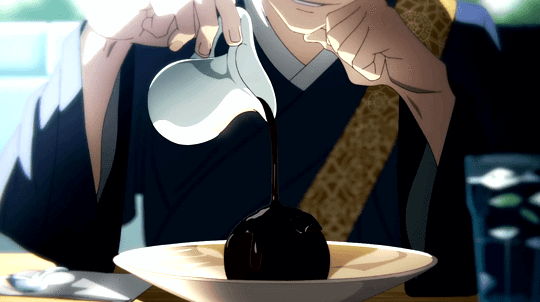
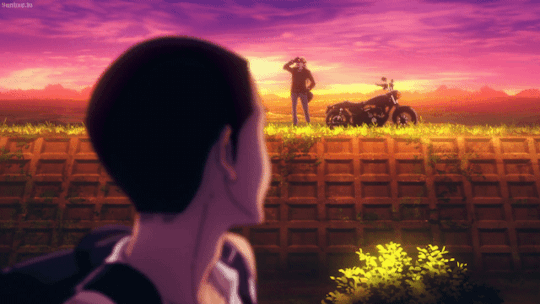
7. Bits and pieces: a) Yuki had an eye on Maki, is that what page 134 was about? b) You can't convenience me that; Geto has a rainbow dragon, the cover page of chapter 63, and cover page of chapter 77 is not gay! There are gay, and I am happy about it!
c)Gojo looking up at his students, smiling like crazy, was such a dad thing to do! Add to that it was only Megumi person to question about that said smile, had my heart filled with warm familiar love!!!
8. Toji Fushiguro: What is there to say that has not been already said on the internet for this fictional character. I mean, I would have loved it if some people would have kept it to them about this man. However, here are my 2 cents about this man, I simp for Toji Fushiguro!
What were expecting?! I mean look at all the fan art he has, how can you not simp for him? regardless of which spectrum you lie on. He is hot in almost all his fanart. I am also surprised that so many people missed the fact that Gege Akutami called Toji, Papa-guro?! No one is gone to question that? that how utterly cute that it is!
If you have come this far then I would like to thank you! Also please leave your favorite fanfics recordations in notes cause I am lazy!! thank you!!!
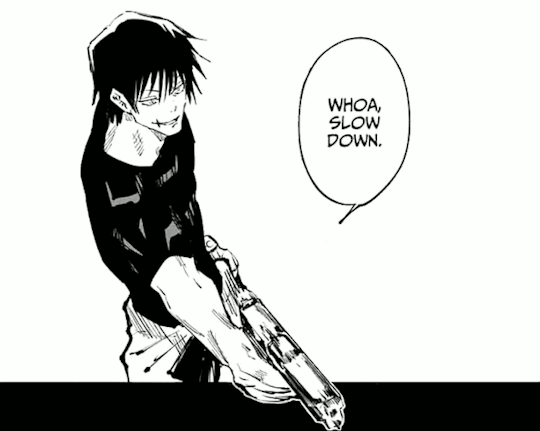
#jjk#jjk spoilers#jujustu kaisen#jujutsu sorcerer#anime#spoliers#toji fushiguro#naruto#sakura#principal yaga#jjk panda#geto suguru#gojo satoru#jujutsu kaisen gojo#anime spoilers#manga spoilers#shonen#manga#shipping discourse#naruto shippuden#sakura haruno#shoko ieiri#utahime jjk#mai zenin
9 notes
·
View notes
Text
Xena: Warrior Princess Review
During Pride Month 2020, I finally got around to watch ‘Xena’. A show that had been in my to-watch list for years, but never got around to start. And when I finally did, I was pleasantly surprised. It was not what I expected and it was everything I think my 11 year old self would have loved.
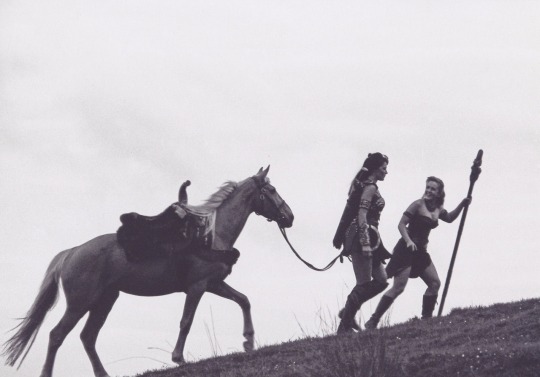
The one thing that surprised me about the show, was the lack of packaging. Even though it was a fantasy, it also played with different kinds of genres too. I’ve talked about this before in my other review - ‘Xena’ was made at a time when TV had very few rules/rarely had a set audience, since there were parts of the show that were clearly for kids and there were other parts that were clearly for adults (therefore had much more flexibility). I admired how they weren’t afraid to break barriers and touch on deep themes such as religion, morality, redemption, spirituality, motherhood, forgiveness etc - even more than shows of today are able. I also loved how they played into the idea of ‘murder’ and how much it can damage a person - not just the person who commits the act, but the many people affected afterwards. I wasn’t expecting it to be that extreme. It made me think that this must of been the inspiration for ‘Game of Thrones’.
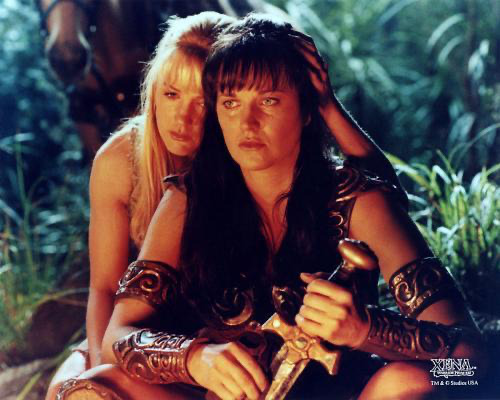
I see a lot of comments here and there, saying how ‘cheesy and terrible’ it was but to just accept it because its part of the fun. And while like any show it does suffer from the occasional spell of bad writing (the whole of season 5) but it was also shown to be very aware of that fact and never took itself too seriously - unlike some shows I could mention.
And regarding the ‘cheese’ factor (what 90s show wasn’t) It definitely can be, but I would call it ‘camp’ and ‘experimental’ more than anything else. (Don’t diss the poor use of CGI - I’m personally sympathetic to what was avaliable to them at the time) The style of humour reminded me of Taika Waititi’s filmmaking. If you’ve watched any of his films such as ‘Hunt for The Wilderpeople’ or ‘Jojo Rabbit’, then you know what I’m talking about. I liked how little they cared about being accurate or logical, which added to the ‘bonkers’ element in the show - which you can see in all of Taika Waititi’s films.
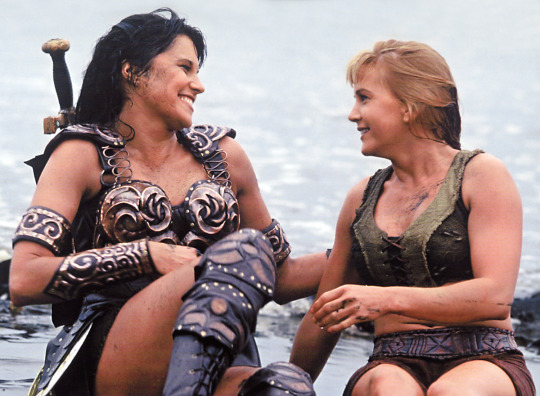
In all seriousness, a show centered around two women in their late twenties, who are realistic sizes (not trying to play teenagers). One of whom is a reformed mass murderer, who has lived a life experience, trying to do good in the world for the first time, picking the other one up who has no life experience prior (after they bugged them until they said ‘ok fine’) in their path to redemption. Just two women who become friends travelling the world together, fighting crime, having a laff, learning from one another without any toxicity - when suddenly when the stakes are raised - they realise ‘oh I'm actually falling in love with this person’ I have watched a lot of badly written shows in my childhood enough to know that, that’s not ‘cheesy’. I’ve never seen a story like that in my entire life. I’m not at all surprised that Russel T Davis was inspired by it while writing the Doctor and Rose’s relationship in ‘Doctor Who’ since he’s gay himself.
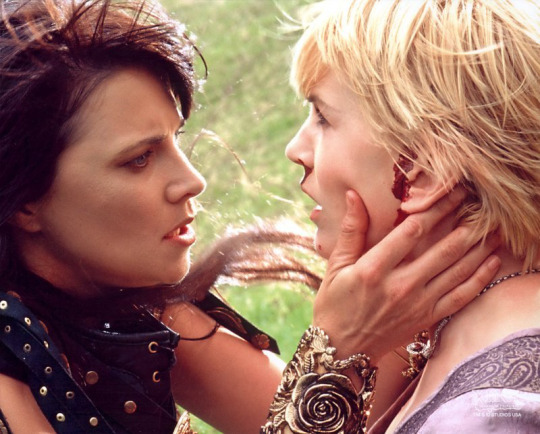
What’s more amazing about their love story is how they’re both develop as separate people as well. There was this video essay explaining ‘Why you should watch Angel’ the spin off series to Buffy; how ‘Buffy The Vampire Slayer ‘was all about growing up and ‘Angel’ was all about being an adult. With Xena: Warrior Princess, you have both of those stories at the same time.
Xena’s character was such a multifaceted experience to watch. And I can’t imagine anyone else who could play her as well as Lucy Lawless. What planet did they get that actress from? She's flawless! The amount of skill she has to put herself into a very physical role is astonishing. I personally had a love/hate relationship with her character all series long. Not in the way that I hated her, just that I couldn’t trust if she was all good or bad, which I know was intentional on the writers part. I haven’t seen a character quite like her before. She felt very much like a fallen angel; almost like the villain of her own story. Some of my favourite episodes come from fleshing out her character and dark past (‘Locked up and Tied Down’ is one of them) which reminds the audience that's she's not the stereotypical hero everyone expects. I loved her transformation from being this incredibly stoic warrior to being content and happy with who she is in season six, all because of a woman she fell in love with along the way.
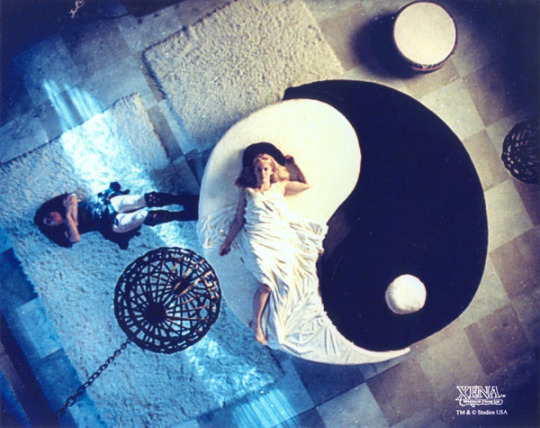
I’ve always thought of Gabrielle as the real hero and narrator of ‘Xena’. She’s the prime example of ‘a normal person becoming extrodinary’. Gabrielle’s coming of age story starting out as an innocent girl from a poor village dreaming of adventure, and ending as this vicious warrior who realises the ‘adventure’ wasn’t how she made it out to be is honestly the best character arc that I’ve ever seen. I loved how travelling with Xena made her realise her passion for writing (which was never going to happen in her home town, given the ‘sexist’ and ‘heteronormative’ ideas) and that she became a amazon princess like Xena. In regards to her sexuality, which is more up for debate than Xena’s (which I think we can all agree is bisexual) I personally interpret her as gay, just in terms of how she was written. Theres this moment in season 4 where she's being held up her hair, and Xena “symbolically” cuts it off ‘freeing her’. And she never really gets with a man afterwards, unless she’s being ‘possessed. It reminded me of a moment in one of Hayao Miyasaki’s films ‘Laputa, Castle in the Sky’ where the bad guy Moska shoots Sheeta’s ‘princess hair off’ which symbolises her transition from child to adult.
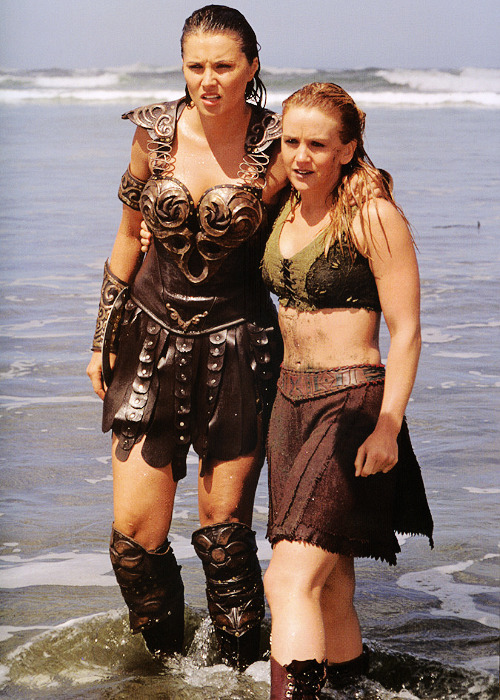
The cinematography was breathtaking. There was some great utilisation of New Zealand as the scenery. So was the soundtrack. You could tell it was made by experienced filmmakers. One of my favourite things about the show was the domestic elements - moments in the show where time seemed to stop - which made the world around the characters seem very real and magical. Even though it was a show that featured a lot of action/adventure, there was also this gentleness to it as well. For example, you could feel the wetness of the rain, the warmth of the sun and the clashing of the waves. This technique is used in Hayao Miayasaki’s work a lot .
The technique is referred to as ‘MA’ 空虚 meaning emptiness in Japanese. ‘Miyasaki describes this as the time between a clap’
“If you just have non stop action, with no breathing space at all, its just busyness. But if you take a moment, then the tension building in the film can grow into a wider dimension” - Hayao Miyasaki
undefined
youtube
The episode ‘A Day in the Life’ in season two is a really good example of this technique being used.
To my understanding, they used a lot of the local actors in New Zealand, which according to Lucy Lawless, consisted of ‘African immigrants and other different ethnicites’. It was so refreshing to see such a diverse show (despite some slip ups) especially in the 90s. I appreciated the idea that if the actors or extras couldn’t do an ‘american accent’ people could just talk in their natural speech which was also very refreshing.
The LGBT representation was surprisingly amazing. I never expected so many queer characters in one show - especially under the censors. There was this one episode where they had a trans woman - played by an actual trans actress - win a beauty contest. It made me cry. Not to mention the actress was an aids activist. It was actually Lucy Lawless’ idea to kiss her which was incredibly controversial at that time considering how everyone thought you could catch aids just by kissing. I can definitey see how it validated people back in the 90s.
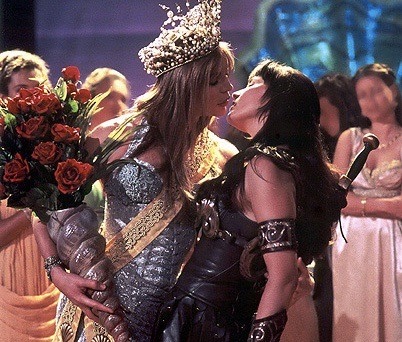
When people told me that Xena: Warrior Princess was one of the greatest love stories, I thought they were exaggerating a little. But no, watching the show in context, I found out that it really is. Despite its obvious restrictions, It made me realise (regarding token gay couples today) how often television writers rely on physicality and drama to convey a ‘love story’ and how much of it is actually pandering the audience. One of the reasons why Xena and Gabrielle’s relationship felt so genuine is because it was built on mutual respect/compassion and they were also best friends. I felt like I was witnessing something very real and private. It didn’t need kissing scenes or drama to make it interesting.
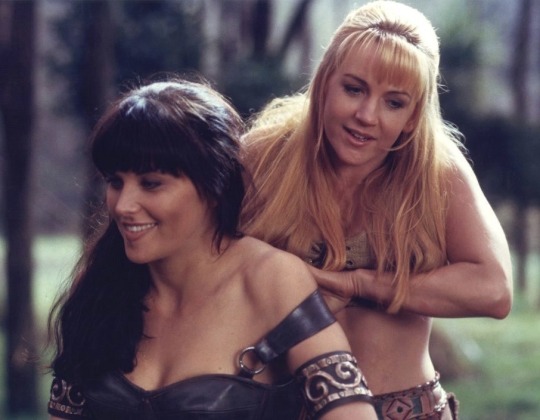
It really helped that most of the writers were queer also. There’s this opening scene in season 4, panning over to Gabrielle giving Xena a massage (metaphor for sex - because they weren’t able to show that on screen) which I consider to be one of the most iconic scenes in media - considering how I wanted to sick up my supper when I watched the 10 minute ‘empty’ explicit sex scene in ‘Blue in the Warmest Colour’. The difference when something is written by a queer women vs a straight man.
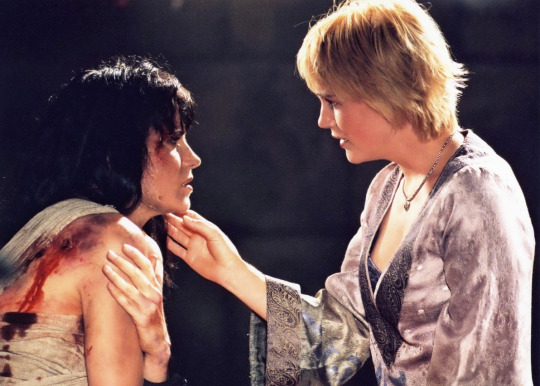
Because the creators weren’t allowed to write their love story in the normal way, due to the studio forbidding them to, they found creative ways to showcase that love on screen - which made for a very magical/sensual experience. And I can safely say, if anyone has doubts about watching ‘Xena’, whenever I expected to be queer baited at a few points in the show, I was proved wrong time and time again. It’s the most romantical show I’ve ever seen in my life!
#xena: warrior princess#xena#xena x gabrielle#review#rating#analysis#renee o'connor#Lucy lawless#90s show#lgbtqia#lgbt#pride month#-- it truly is a unique show#gabrielle#studio ghibli#hayao miyasaki#quote#film#reference#fantasy#lgbt representation#lgbtqia representation#doctor x rose#xena x gabby#subtext#happy pride 🌈#queer subtext#xwp#xena and gabrielle#xena & gabrielle
286 notes
·
View notes
Text
I was just thinking about the villains that I obsess over, and how I would rank them in terms of morality, because I think a lot of my faves are the “not so bad” guys that sometimes show a little potential for goodness (but are still basically jerks). And then there’s Maximus who is just a chaotic asshole.
But if I was going to rank from best (as in nicest) to worst (most evil), it would go like this:
Pied Piper/Hartley Rathaway: Angry nerd musician, uses mind control and sonic waves to commit robberies. Born into a wealthy but abusive family, he later becomes concerned with issues of poverty and social justice, and starts helping the homeless. The one Flash rogue who has reformed and stayed reformed, he was even close friends with Wally West in the 90′s. (I so miss this friendship and wish DC would let them interact again.) Tries to kill Flash during the Silver Age (all the Rogues did), but to my knowledge has not murdered anyone in his crimes. (He did kill Desaad and blow up Apokolips during Countdown, but Desaad had it coming.) Given that he’s been reformed for years, I think it’s an absolute waste that he’s never gotten onto some kind of Justice League auxiliary team or something. Put the boy on a team book, he’s got potential!
Trickster/James Jesse: Wacky bank robber and con man who enjoys the thrill of tricking people more than he really cares about the money. Over-dramatic little shit who sometimes acts like a smooth con man and sometimes acts like a cartoon character, often in the same comic. Is good friend with Hartley (or at least he used to be, but I think their friendship has fallen into the DC continuity garbage pit). Tried to kill Flash during the Silver Age, but to my knowledge has not murdered anyone. He did push his parents off a building in the his latest arc, but Flash saved them. He’s a selfish jerk who is capable of goodness occasionally and flirted with the idea of reform, but much less sincerely than Hartley. I’m kinda protective of him because I’m afraid DC will push him in a dark direction to match the CW version, who is Doing Trickster Wrong. Like, it’s okay to just let him be silly bank robber, they don’t all have to be edgy.
Pyro/St. John Allerdyce: Punch clock villain - always the lackey, never the leader, small time evil. I think he’s similar to Avalanche and Blob in that he’s basically an ammoral, selfish mercenary type. He looks out for number one first. He’s definitely killed people, and probably enjoys burning things a little too much. I don’t think he necessarily gets his jollies from killing at random (like he’s not a serial killer type), but if you meet him on the battlefield he’s gonna be a nasty, vicious piece of shit. He’s actually kinda affable evil - if you meet him at a bar, he’ll probably just hang out and drink with you. He seems to bond with his team-mates, and has been a pretty good team-player in Marauders (even referring to them as his friends last issue). He also seemed to regret his past actions when he was dying of the Legacy Virus, and tried to make up for it by saving Senator Kelley. Now he’s back to partying and burning things in Marauders, but at least he seems to be on the X-Men’s side now?
Riddler/Edward Nygma: I actually think he doesn’t really enjoy killing, but I rank him worse than Pyro because he’s arguably caused more damage over the years. Riddler is determined to show up Batman and prove that he is the bestest, smartest boy in all the world, and he doesn’t care who gets hurt in the process. He kills people mostly as pawns and side casualties - if they weren’t smart enough to escape (or Batman didn’t save them quickly enough), hey, that’s not his fault, right? Depending on the writer, he can range from a silly, slightly pathetic villain with a goofy schtick to a cold-hearted, terrifying criminal mastermind. He reformed briefly and worked as a detective while he had amnesia, but went back to crime again pretty quickly. I like the idea of PI Riddler, trying to show up Batman through legal means, competing not as criminal vs. detective, but as two fellow detectives. I wish we’d gotten more PI Riddler, but oh well.
Maximus: Okay, this dude is just the worst. Sometimes claims to be doing things “for the good of the Inhuman people,” but he’s generally just wrecking shit for his own selfish purposes or because he wants to cause chaos and tear everything down. I can have a little sympathy for him for his obvious mental illness, and because he grew up in a pretty dysfunctional family/society, but he’s still pretty terrible. And I generally don’t consider the mental illness to be a reason for his villainy - like, he’s a villain who happens to be mentally ill, not a villain because of his mental illness. He’s caused plenty of death in his uprisings, generally treats people like disposable pawns, and is willing to sell out his people to the Kree if it means he gets to rule. Sometimes he works with his family against a common threat as the token evil team-mate (and I generally enjoy him most in this role), but he’s always got his own agenda. The closest he came to a redemption arc was probably when the saw his own horrible future in Royals, and seemed genuinely distressed at what befell the Inhuman people. He’s a lot of fun, though. Snarky, hilarious, chaotic, and utterly brilliant. He can be the mad scientist or the manipulative political advisor, or both depending on the story. I just want him to build giant robots and wreck things.
Honorable mention: Loki. I don’t even know where to rank him. He used to be a monster on par with Maximus, Doom or old-school Magneto, now he’s a sarcastic, angsty hipster that pops up to annoy Thor or help Thor in an annoying way. He’s fun!
Second honorable mention: Fabian Cortez. In terms of intentions, he’s really just as bad, or maybe even worse than Maximus. But since his debut in the 90′s, he’s gone through so many stages of villain decay that now he’s basically the X-Men/Quicksilver’s Team Rocket. Not even remotely a threat, and probably gonna get his ass kicked quickly. For that, I might put him somewhere between Riddler and Pyro, or between Riddler and Maximus. He’s hilarious, and I love him.
Obviously, this list is entirely subjective and my own opinion. People are free to disagree about where people belong on the list. There’s probably not much point in ranking comic characters this way, given that any of them can get pushed in darker directions or towards redemptive arcs based on writers, and many comic characters have committed atrocities that have gotten swept under the rug. There’s also the question of motive vs. actions - is Fabian really less bad because he’s incompetent? Who knows? This is just something I was thinking about, and wanted to write out in terms of my faves.
24 notes
·
View notes
Text
Final Thoughts on Tangled: The Series
Normally, I don’t do many reviews, but since I’ve given my thoughts on points in the series before, I feel compelled to address certain things in the series in a full list. As I’ve already brought up in the past, I very much have a love-hate relationship with the show. This is because it has both exceptionally amazing and exceptionally terrible points that I can’t just shrug off--in part, because I’m starting to see them everywhere in a lot of cartoons these days, especially with Disney. Expect me to go over both positive and negative points, and I’ve give my conclusion on the series as a whole last. There will be spoilers, so if you haven’t watched it in full yet, please do so before checking out the cut below.
Characters
As far as building up a lot of the characters go, I think most of them are really well-developed. From a main character like Varian to minor figures like Captain Quaid, the creators seemed to have a good grasp of fleshing them out even when if they had a limited time to do so. It helped the world of Tangled feel expansive and real, with even many of the background characters having their own identity and personalities: We didn’t need their life stories to make them stand out in our minds and they weren’t treated like a choir group used to only fill up space, which can be an easy pitfall when they’re showcased with notable importance to the story. (Moana, I’m looking at you.)
My issues with the characters largely fall on a case-by-case basis--which will be brought up further below--but there is one general point that did wear on my nerves, and that’s with many of them having what I’d like to call “selective competence.” By this, I mean that the strengths of the characters seemed to shift depending on whatever narrative the team wanted to tell. One of the biggest examples of this is King Edmund: We’re introduced to him as a skilled fighter and fierce protector that could match up against not only the members of the Brotherhood like Adira because he trained them himself, but also while simultaneously holding his own for a time against Rapunzel and her friends--however, when he started being used for mostly comedy relief, he couldn’t even defend himself against the Stabbington Brothers who the group has already beaten multiple times over. For crying out loud, they let him know they were there! In no way do I think characters need some kind of point system to mark how strong they are--this is a story, not a tabletop RPG--but at the same time there’s needs to be better consistency and planning. For the point I mentioned with King Edmund, an easy fix would’ve been a sneak attack that knocked him out before he had the chance to react by making him so consumed with the thought of losing his son in that moment that he wasn’t as aware of his surroundings as normal. At least then there’d be an excuse! This happens repeatedly throughout the series and with multiple characters though that it’s far from a slip up.
Another general that focuses more on the girls is the power dynamic. Look, I’m all for strong women, but not at the sacrifice of things like story or characters, and the show made a bad habit of leaning into that with their selective competence. Think I’m wrong? Ok, then explain this to me: How do you have two famed criminals with a known record throughout multiple kingdoms act like bumbling idiots who constantly either cause problems for the group with typically someone like Raps, Cass, or Adira having to get them out of that situation? And if that wasn’t obvious enough, you have Adira’s little “I don’t get why they named it the Brotherhood because I’m a woman” statement that couldn’t be more on the nose.
You know what? I’m gonna go ahead and get to Adira despite her being a more minor character because I couldn’t stand her. Most of the time when she showed up, I wanted to roll my eyes into the back of my skull because the primary reason she exists is to be a “strong woman who don’t need no man,” which, to be frank, we already have in spades in this show with much better characters. She’s not impressive or a good role model for young girls: She’s an obnoxious token--and in more ways than one. For no point whatsoever, she kept disappearing and reappearing in and out of episodes throughout S2 whenever the creators decided to use her--even though the audience is well aware she’s following the group and nothing seems to be stopping her from sticking by them. They were shown fine with her travelling at their side on multiple occasions, so what was the need to have her vanish off and on when we know she’s just keeping up with them in the shadows anyhow? To top that off, she insists on being needlessly mysterious just for the sake of it despite her sharing similar goals with Raps and the group. It would’ve been one thing had she just kept the potential danger of the moonstone’s affects on Raps a secret: The best lies are told with a bit of truth and it would’ve set up the mysterious angle of her much better. Better anyway than her helping them one minute and then beating them up in the next because she “doesn’t like to be touched.” It got to the point where I didn’t care whether or not she could be trusted: I just wanted her offscreen.
Going back to something positive for a moment though, Raps and Eugene are easily the best in the series (Or at least when they’re alone together, I have notes on both....) I’m not talking about the romance between them--although that was really well done: I’m talking about how they bounced off of each other. There’s something to be said about people who are willing to grow beside each other, and that growth shines in their relationship. If one of them falters, the other is there to not only pick up the slack, but help pull the first back onto their feet. Both Raps and Eugene have their highs and lows throughout the series and they’re willing to call the other back to earth and be their support when things go too far. The power dynamic issue I mentioned earlier? I never see it with them. They’re both balanced and match to each other’s strengths/weaknesses. Neither of them is a vision of perfection, a knight in shining armor, or a damsel in distress: They’re two people who work in tandem to get through the hard times and simply enjoy the good ones together.
Since I already wrote a large post discussing Raps and Cassandra, I’m going to link to that here. For Cassandra though, I can summarize my thoughts on what they did to her character in one word: Butchered. For both Seasons 1 and 2, the set-up for her was great, but everything after that was mostly an abysmal fall from grace. They focused too much on her being jealous of Raps and upset over Gothel and ignored all of the problems that had sprung up in their friendship--such as Raps pushing her to the side just as much as anyone else and taking advantage of her friendship. And then she literally had to ask herself, “Wait... am I the bad guy?” for her to consider that her actions may be unjustified. Even after that, she immediately jumps back into her “villain” mode when Varian accidentally fired at her and blaming Raps--who’s just standing there--all while knowing ahead of time that Raps signed the decree for the weapon and having already excused it. I saw glimmers of potential in the finale, but honestly, they fumbled and tripped so much with Cass that, even while satisfied with the conclusion to her arc, I’d far from call it a success.
Lance... This character just screams of missed opportunities. They gave him a great background to go with Eugene’s as these two best friends leaving a life of crime behind to each find their place in the world and then proceeded to make him the butt of a joke just about every second he was onscreen. I can’t even think of a genuine character trait he had: I just look at him and see Tangled’s version of Olaf. At least the end where he adopts Angry and Catalina was sweet, but even that felt lacking because all we got out of them were dumb jokes. We see them together, but hardly in a way that would establish a parent-child bond; more like two siblings outwitting their dim babysitter. The creators just could’ve handled him so much better, giving him and Eugene/Angry/Catalina more sincere interactions or letting him have a couple of moments to show what skills he brings to the group. They already had Shorty and used comedy among all of the characters anyway, so what was the point of making Lance a walking punchline?
As for Eugene, I don’t have much to say beyond the points where they just made him out to be a moron like they did with Lance. I actually really like how they developed them: How, personality wise, he never felt the need to change himself for anyone--he was confident in himself--but nevertheless struggled to find his own identity because of his past, family legacy, and whatever other revelations he came across in the present. It was an interesting journey, watching him find himself.
For all the bad I had to say regarding Raps in the post I listed earlier, I will admit as well that she does have some positive aspects. I liked how her character arc focused on the importance of personal freedom while balancing it with the moral choice of accepting one’s duty to others. For a time, she’s not ready to rule Corona due to her lack of knowledge/experience and never having the chance to discover what she needed in her own life. However, she doesn’t use it as an excuse to shirk away from her responsibilities. She accepts her duty to her kingdom and her people--and even to Eugene to an extent since she does love him and knows it’s unfair if she made him wait forever at her side--but she’s not willing to throw away her own happiness by rushing forward to fulfill them. It’s a balance that’s easy to struggle with, if not to the same degree as a princess, whether from a basic work/life or group/individual scenario or if you’re, for example, a young person rushed from one phase of their life to the next with certain expectations. The cherry on top is that she’s also a person struggling with her own maturity in the meantime, going from careless in some situations to a voice of reason later down the road.
Overall, Zhan Tiri was a pretty good villain, particularly because she was actually, well, an honest villain. After years of show after show, movie after movie, constantly being compelled to give their bad guys some sob story that hardly ever makes up for their actions, we’re finally back to getting to villains we love to hate. While I wouldn’t place her on the top tier, she’s still well done overall. I don’t like her more powerful forms that much--they just don’t seem to have the best designs--but the child form was great. The team found a good balance of conniving and creepy with her look. My main complaint is that she can’t learn to shut up. Now, it’s not the monologuing or even her spilling her own plans that I don’t like. Yes, it’s a trope for villains; however, it’s often used to showcase their arrogance; give the audience some more information about what’s going on in a simple, but effective way; and typically done when either the hero is at their weakest or when the villain is alone/with other villains. The problem is Zhan Tiri’s timing. It would be one thing if she monologued when Raps was at her weakest: Instead, she decides to reveal her identity and intentions to Raps well before her plans could succeed, therefore putting them at risk. Had she not outright said “I’m playing Cass,” Cass’s morality would be placed in a more questionable eye by Raps and the others--further encouraging the conflict between the two young woman, which was what the demon wanted. Her explaining that to Raps was just dumb.
Music
I have no complaints. Whoever is behind this, bravo: You made gold.
I’d dare argue that the bulk of the songs could easily be any number that you’d hear on a successful Broadway track. They're memorable, catchy, and tailor-made to perfectly fit in their respective scenes. Everyone involved seemed to put their heart into the music, making many of them extremely powerful pieces. The dialogue also meshes really well with the music, allowing the songs to flow naturally in and out of the scenes. The only time where I’d say it doesn’t quite work would be in Through it All, but considering that the scene makes a point of joking about the musical elements of the series prior to that, you’re supposed to be aware of how unnatural it is, which can give it a charm of its own.
Art and Animation
Again, for the art, no complaints. Aside from some minor nitpicks that I’d shrug off--and I mean really minor, like a bird for the beginning of one episode that was huge in comparison to a second flying close to it--it’s beautiful. The style has a strong, painter-like quality that fits with the concept of this being Rapunzel’s story, matching to her--of course--being an artist. You have these bold, beautiful colors and the team wasn’t afraid of letting them shine at their best, like in scenes such as when Rapunzel and Cassandra are fighting as the sundrop and moonstone. There were so many nice contrasts that directed one’s focus perfectly on what the creators wanted you to see and that also made for rich, impressive moments in the show.
As for more subtle details, one that I particularly liked were some of the gradients and the way they’re applied, such as the blush to Rapunzel’s face. There’s something about that soft speckle around the edges that’s really satisfying, and--when comparing Rapunzel’s design to the flatter skin tone on most of the other characters--it gives her a warm glow that helps solidify her as the physical embodiement of the sundrop.
The animation is also super solid, and any critiques I have on it largely fall to things I think probably had more to do with the script than the animation itself. For example, there’s the moment when Cass and Raps are fighting in Gothel’s house where Cass ties Raps hair around a pole, in the next moment it’s off the pole and Raps smacks her with it, and then it’s immediately wrapped around the pole again with Raps trying to unravel it. It’s a pretty obvious and careless mistake to make--especially when you see how wonderfully choreographed a lot of the series is with dynamic camera shots that move fluidity with the characters. What makes me think it’s more of a script-based problem is that there are similar inconsistencies that happen elsewhere and--while animated beautifully--don’t make much sense. One example of this is in the finale, where Cass is dying. I tried re-watching the scene and checking the wikia to see how she got a fatal injury in case I missed something, but no: It’s never shown. It’s like the team decided to have her dying just so Raps could say the healing incantation one final time. If you want to excuse it, you could say it had to do with the moonstone, but then you’d also have to explain how neither of the girls showcase any physical weaknesses aside from their loss of powers when Zhan Tiri takes both of their respective gems. Which leads me to...
Writing
This is the hardest for me to discuss because so much of it is either really, really good or really, really bad. I guess to start, I’ll bring up a problem that I noticed mimicked another show, Star Vs. the Forces of Evil. Similarly to SVTFOE, the last season didn’t focus enough on the main plot to properly flesh it out--albeit, SVTFOE was much worse than Tangled: The Series could ever fear being. A lot of people try to blame this on “Well, it’s the last season: It’s all they’ve got left to tell the story in.” Ok... Well, yeah, we can talk about how Disney and other companies stink at just letting creators tell a good story in the time they need to in another discussion, but here’s the thing: The teams know well in advance how many episodes they have to work with. Unfortunately, they wasted some of those episodes. Did we really need to see Catalina as a werewolf? Did we really need Pascal to befriend a dragon? Even in the finale, with the more minor characters’ stumble into the Lost Realm, what was the point of it besides humor and getting them out of the way for a bit? I’d understand if they were episodes for lightening the mood, but they already put so much comedy relief in with the main plot that that isn’t necessary: The mood’s already light enough and there’s just not much time to waste on random filler. Again, filler isn’t a problem in itself either: You can have it, just don’t let it sacrifice main points that the show should address. One way to have gotten around this was to use more of a two-plot structure with some of these episodes: Plot A would focus on whatever fun the team wanted to have while Plot B could sprinkle in bits of information that the audience will need later for the main story--or they could even have done that with just a small scene to nudge some info in after the episode was done and before the credits rolled.
I’d like to bring up some of the points that I thought could’ve been covered better. First off, the whole “destiny” thing. Well, we get what all signs Raps’ destiny is pointing to, but as often as it was brought up for Cass, they hardly explained what she wanted after taking the moonstone. What was her plan? Initially, she didn’t want to attack/take over Corona. Sure, they tried saying she didn’t want to be anyone’s second, but everyone was going to hate her for taking the moonstone in the first place, so... good work there: I don’t think Cass would be stupid enough not to realize people wouldn’t think highly of her for it despite what the show tried to tell us. They even missed the chance for some friction between Cass and Eugene after the latter was made the Captain of the Guard: Come on, you know that would’ve set her off! Even the show questions this by Raps asking Cass what her end goal was in, I guess, the creators’ attempt at patching their mistake too little too late.
Then there was the oh-so-important eclipse that we’re told nothing about until it gets here... besides that fact that it’s an eclipse. The way the team tried to build it up through Zhan Tiri, you would’ve thought it was some cosmic magic on level with Avatar’s Sozin’s Comet. From what we could tell though, no, it’s just a normal eclipse. That’s fine, but then why not explain more about it when everything else involving the sun and moon was amplified to some magical involvement?
Thirdly, they brought the death incantation back: You know, that spell Raps was stupid enough to think she could control and then somehow randomly did for Varian because plot device despite it later being rendered pointless when the black rocks are then shown to be able to pierce through the amber just fine in S3, so Raps could’ve used those to save Varian’s father instead back when she had control of them? That death incantation? Yeah, suddenly it’s a bad thing again. I could probably write a whole other post on these types of goofs alone, but I’ve been writing this for hours now and I’m almost to the end of it.
To wrap up this section, I will, however, admit that I liked some of the little things they included and would bring up later: I just wish they had done it more. This is a method I call breadcrumb storytelling, in which a creator--for a specific moment--gives attention to something small that inevitably has a solid payback, often with the audience forgetting about it for a period only to resurface in their mind at the reveal. One major point I’m talking about here was the use of the Moonstone shard. Like many others, I actually did think they were going to show it as a sign of Cass’s slow destruction--that the Moonstone was a physical part of her and that by destroying it or overusing its power, it would inevitable destroy her as well. It was a pleasant surprise to see the shard used as the key to defeating Zhan Tiri, and just how it was used.
Conclusion
So, did I like the series overall or not...? Eh... I still find myself going back and forth on it. What I hate about it, I hate with a passion, but the good parts that are there genuinely moved me. The things that worked wrapped up nicely and it was nice, but bittersweet to see the characters get their happy ending because it did feel pretty earned and you do feel sad to say goodbye to these people and this world you’ve become familiar with. So I wouldn’t call it bad: I’d compare it to car that got totaled in a wreck and still somehow managed to flawlessly parallel park without any casualties after it flipped across the street. It’s a mess, but I can still smile at it by the end of the day.
8 notes
·
View notes
Text
The Handmaid’s Tale 3x13, “Mayday”
Boy, the Holocaust references are strong with this one. From the opening scene with June and other recently-captured women being herded, screaming, through a gauntlet of Gilead’s processing facilities (I don’t think there’s any question where those Down’s Syndrome and disabled women were being taken, incidentally) to the final scenes in the woods, with that crowd of children cowering just out of view of the Guardians’ spotlights. The show’s deliberately anachronistic look even intensifies the reference - it’s easy to look at June and the Marthas ferrying a bunch of children away from a rape-dystopia in the near future and see a group of nuns trying to rescue Jewish children from the Nazis. The clothes are, after all, basically the same.
It’s a reference that is earned, and overall the episode is a successful one - as ridiculous and implausible as it was, none of us actually wanted June’s plan to fail, and the scenes in which the plane arrives in Canada and the characters there realize the scope of June’s accomplishment (including Luke’s forlorn hope that his wife or daughter might, despite appearances, be on board as well) were genuinely moving.
But it’s also a reference that undercuts a lot of the more complex, morally ambivalent stuff the episode tries to do with June. The opening voiceover talks about the necessity of “ruthlessness” in a place like Gilead. The obvious contrast the episode draws between the show’s earliest scenes and the concluding ones of this season, and between June’s helplessness, and her still-lingering belief in Gilead’s capacity for human decency then and her refusal to give any of its functionaries mercy or quarter now, are clearly making a point about the state of mind one needs to survive, and help others survive and escape, the hell-world that Gilead is. The problem is, the show clearly wants me to see those choices as a negative, something that makes June a compromised person, maybe someone who is unfit to live a normal life. And I just don’t see it.
For instance, threatening to kill Maggie, the Martha who not only endangers the Mayday plan but threatens to spill the beans on it to her mistress? 100% the right thing to do. Quite frankly, if Maggie didn’t realize that she was signing her own death warrant the moment she decided to leave the Lawrence house, she was too stupid to survive in Gilead for much longer anyway. And while June could have given the Guardian who’d shot her mercy, why should she? In the long run, the more of those people who die, the better the world, and particularly the innocents still trapped in Gilead, will be. If you’re going to bring up the Holocaust in your visuals, don’t act like there’s any real question about the morality of killing Nazis, or even silencing relative innocents whose actions might send children back into the Nazi death-machine’s grasp.
As I’ve said in the past, I would love for The Handmaid’s Tale to be a show about the psychological toll that Gilead exerts on its victims, especially when they rise up to resist it. In fact, we’ve already gotten a bit of this, with Moira and Emily confessing the murders they’ve committed to one another, and the fact that they’re not sorry for them. But when it comes to June, what we get instead is facile moral essentialism. Threatening to kill Maggie is a perfectly rational course of action. Turning a gun on Rebecca, the little girl June had been bonding with minutes earlier, is a completely irrational one, and the show simply doesn’t give us the connective tissue between the two choices. The idea that June is so hardened and task-oriented that she might threaten a child for crying hasn’t been earned (and meanwhile, June’s actual acts of sadism, such as her abuse of Natalie, are folded into her heroic narrative - Natalie is now, like Eleanor, just another one of the sacrifices she’s made in trying to bring the Mayday plan to fruition).
I really don’t get a sense that the show understands who June is at this stage, which is striking in a series that is otherwise so good at balancing its characters on a knife’s edge of ambivalence. It’s not afraid to let Moira and Emily do and say ugly things while still expecting us to sympathize with them, and it repeatedly showcases Serena’s humanity and her very real pain and yearning (more than she deserves, if you ask me). But with June, it keeps seesawing unsteadily between saint and monster, hero and antihero, with only Elisabeth Moss’s performance to keep the whole thing grounded.
Going into season 4, I’d be happy if the show delved more into hard-headed June (I’m assuming she isn’t going to die, even though the episode gives the character what could have been a perfect send-off), who has no patience for the delusions of anyone around her, but who also succeeds, in part, because of her ability to empathize and engage with even the most depraved, irredeemable people, and who is a bit afraid to go back to her family for fear of what they might see when they look at her. I’m a lot less interested in Saint June, rescuer of small children through the sheer power of her awesomeness (and of the network of hardworking Marthas who make everything happen for her). And I have zero interest in Sadist June, who torments weak women because it makes her feel good and then never admits to it. I’m not sure which one the show will serve up, because I’m not sure it realizes which one it has been depicting.
(Speaking of storylines that could have worked but for their execution, the resolution of the Serena storyline is stilted and doesn’t really come off. There’s an interesting story to be told about how Gilead’s crimes are perceived in the outside world, and how guilt is assigned to people within it. That both Fred and Serena could claim to have been forced into victimizing June - and that Serena, in particular, could hide behind her gender in making that claim - is an interesting wrinkle that deserved more space and consideration. And by the same token, the idea that Serena pushing Nick and June into a relationship constitutes rape - while obviously not entirely wrong - is the sort of reevaluation of the show’s past that deserved more time to sink in for the audience, not to mention some input from the two alleged victims. It’s a shame that the whole thing is brought up and then done away with in the space of a few scenes over three episodes. It should have been the business of most of the season, and would obviously have been a better use of Serena than her abortive redemption arc.)
14 notes
·
View notes
Link
OFFICIALLY, AIMEE MOLLOY’S debut novel, The Perfect Mother, is a thriller. You might call it “grip-lit,” a new term for an old thing: a good suspense novel by a woman. More accurately, by a woman and for women, which The Perfect Mother certainly is. We’ll come back to that part, but first, I don’t think this novel is a thriller at all. To me, it’s a horror story.
First, there’s the visceral horror of the plot. A group of Brooklyn parents who call themselves the May Mothers (there’s one dad; the moms nickname him Token) go out for a drink one hot July night, most leaving their babies for the first time. They’re two drinks in, just starting to relax, when one gets a frantic call. She’s asked Alma, her nanny, to babysit for the group’s one single mother that night. Alma put the baby, Midas, to sleep, and all seemed well — until she went to check on him and he was gone.
Soon, Baby Midas is a cause célèbre in New York. There are prayer vigils, press conferences, and magazine covers about Midas and his mother, Winnie. A cable host named Patricia Faith begins a round-the-clock campaign against Winnie, her friends, and any other mother who has the gall to leave the house before her child turns five. There are prayer vigils in Prospect Park, middle-aged women waving flyers that announce, “Child neglect is a crime,” then cite Isaiah: “Can a woman forget her nursing child, that she should have no compassion on the son of her womb?”
Meanwhile, the rest of the May Mothers are frantic with guilt and fear. Guilt because they lured Winnie out for a drink and persuaded her to stop looking at the baby-monitor video on her phone — or, as Patricia Faith would have it, to “forget her nursing child.” Fear because they all went out, too. They all left their babies. Who knows why this happened to Winnie, not to one of them?
That’s the first horror: the it-could-happen-to-anyone kidnapping, the baby there one second and gone the next. The second horror is sneakier, and more interesting. Every woman in The Perfect Mother is haunted, and hunted, by the pressure to be exactly what the title suggests. The protagonists, Nell, Colette, and Francie, can’t go outside without strangers weighing in on their bodies, careers, and lives.
The opinions about what a mother should be come first and foremost from the media. There’s Patricia Faith and her prayer ladies, a smarmy New York Post reporter named Elliott Falk, and Nell’s boss at a thinly veiled Condé Nast. In one brilliant scene, Nell suggests that the company’s flagship magazine, Gossip!, “rise above” the Baby Midas scandal, and her boss snaps back, “Rise above it? That’s not our job, Nell. Our job is to create it.”
There are plenty of opinions closer to home, too. Each chapter opens with an email from a Brooklyn parenting network called The Village, which sends perky little reminders to hire a lactation consultant, walk off your baby weight, and start having sex with your partner again. The protagonists’ mothers tell them what to do: Baptize your baby! Go back to work! The May Mothers compete overtly with each other, exchanging homeopathic tips and displays of vulnerability like currency. Even Nell’s piggish boss has ideas about how a mother should be: he makes her return early from maternity leave, then shames her for gaining weight and missing her child.
It’s not news that when women become mothers, a whole new world of judgment snaps open. On a recent post on the fashion blog Man Repeller, the site’s founder, Leandra Medine, writes that after the recent birth of her twins, “I’ve noticed an uptick in the number of negative comments that populate my pictures. ‘Put your phone down and be with your babies,’ they will say.” You don’t need to look far — or try to look at all — to hear and read about experiences like this.
Of course, the idea of motherhood is always waiting for me. I’m 26, straight, Jewish. Every person in my life expects me to have children; I expect it of myself. And I want to, which is different, and less explored. The Perfect Mother doesn’t explore it at all. This is fundamentally a novel of expectations. In its characters’ world, wanting children — having always wanted children — is assumed. Colette, the only May Mother who didn’t get pregnant on purpose, admits to Winnie, “I called the whole thing a mistake for months. I’m excited now, but it’s been a process. I was not ready for her.” As she says this, she thinks of “the other women [in the group], who all seemed as if they’d spent their whole lives just waiting to become moms.”
This is true of the kidnapper, too. She’s a woman driven insane by expectations — her own and everyone else’s. She’s so desperate to be a perfect mother that she ends up possessed by perfection. She hallucinates, dissociates, commits terrible crimes in its service. And for a long time, no one can tell. Her friends find her performance of motherhood intimidating, and to the rest of the world, she’s just another Brooklyn mom with her stroller, going to baby yoga, popping probiotics, doing it right.
Horror stories rely on this dynamic. There has to be a character who’s haunted, or possessed, or stalked by some evil force, and the world around that person has to be unaware. The whole genre would be ruined if everybody believed in demons and ghosts. If Jack and Wendy in The Shining trusted their son’s premonitions, they wouldn’t stay a single night in the Overlook Hotel. In Jac Jemc’s recent novel The Grip of It, a couple moves into a haunted house, then lets their marriage dissolve rather than acknowledge the haunting. Carmen Maria Machado’s gorgeous “Horror Story” has the same premise, but in her version, the couple stays — the most relatable reason — because “the landlord had rented us a haunted house for above market rent and we didn’t have the money to move.”
In the Biblical story of Legion, which I’ve always considered the original horror story, Jesus encounters a man who’s possessed by a violent legion of demons, or else by a violent demon named Legion. He drives the demon(s) from the man into a herd of pigs, which immediately runs off a cliff. Afterward, the people in the town where the man lives aren’t grateful. They “plead with Jesus to leave their region.” He’s just saved them from a threat both spiritual and physical, and they can’t stand to face him — or face what he saw.
The demons in The Perfect Mother are not literal. But a demon is always a metaphor — those suicidal pigs in the Gospel of Mark aren’t important as pigs. The ghosts in the Overlook Hotel matter less than Jack Nicholson chasing his wife with an ax. It’s enough for the woman who kidnaps Midas to be driven by the pernicious ideal of perfection, something that came from outside her but to which she gave a home.
The Perfect Mother is a novel about internalized sexism, specifically as it relates to motherhood. And I do mean motherhood, not just privileged, gentrified Brooklyn motherhood, though I wish that weren’t the book’s context. The Perfect Mother could have been set nearly anywhere else in the United States, and should have been. Still, I hope its message will resonate as far past Park Slope as Molloy clearly intends it to. She seamlessly integrates commentary on the wage gap, on unpaid maternity leave, on male abuse of power in the workplace. Each protagonist has a demon of her own to fight, and with it, a new angle on the fundamental question of how a woman can reject the world’s beliefs about who she should be.
My favorite version of this is Colette, a ghostwriter married to a rising literary star. When the novel starts, she’s unhappily behind on a project her husband, Charlie, won’t take seriously. A few years ago, she ghostwrote a memoir for a charismatic young teacher who is now mayor, and he wants a follow-up. It’s going to be targeted at book clubs and at the “middle-aged women standing in line [at the mayor’s favorite diner], hoping to spot him at a table in the back,” and of course, it’s going to be a best seller. Charlie, though, couldn’t care less. Colette mentions that her deadline is a month closer than his, and he responds, “I know, baby. But you know what’s riding on mine.” To me, that would be grounds for a shrieking fight, but Colette just nods and agrees. Skip forward 100 pages, and she’s selling a novel to Charlie’s publisher.
I’m not going to give away everyone’s story line. Suffice it to say there’s a good Monica Lewinsky parallel, some enjoyable commentary on celebrity, and a few stories of heartbreaking sexual exploitation. There’s an underdeveloped but crucial arc for Alma, the nanny who was there when Midas vanished, whose immigration status and ability to raise her own child are threatened by the media frenzy around the case. And there’s Francie, who only needs to learn to speak up for herself. When the novel begins, she doesn’t even know that could be her goal. By the end, she’s the hero.
Francie shouldn’t need Midas’s disappearance to teach her how to speak up. Colette shouldn’t need it to understand the scope of her ambitions, nor Nell to argue with her sexist boss. This, I suspect, is Aimee Molloy’s agenda. She uses the drama of a kidnapping plot to shake readers awake. Her real goal is to show us the demons of motherhood in broad daylight, to make us admit the house is haunted. In Machado’s “Horror Story,” she’d be the psychic who comes over and opens the dryer, “which caused her to snap into the air like she was hanging from an invisible crucifix and recite something in a language we didn’t recognize, but which sounded unfathomably ancient.” After that, you can’t pretend there’s nothing going on.
I promised I’d return to the claim that The Perfect Mother is for women. I meant that. What I did not mean was that this is a novel for only women to read. It’s a novel written to champion women. It’s a powerful reminder that the consequences of telling a person who she is can be deadly. The Perfect Mother is set to be one of the year’s biggest crime novels, as well as a film starring Kerry Washington. I hope it keeps a whole nation of advice-givers awake all night.
¤
Lily Meyer is a writer and translator living in Washington, DC.
The post Aimee Molloy’s Maternal Horror appeared first on Los Angeles Review of Books.
from Los Angeles Review of Books https://ift.tt/2sS2MwI
via IFTTT
0 notes